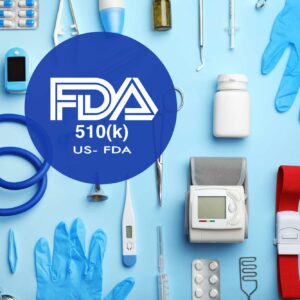Representing the largest and most comprehensive update to USDA’s organic regulations since the original Act in 1990, the “Strengthening Organic Enforcement” (SOE) final rule will impact all aspects of the organic supply chain and becomes effective just around the corner on March 19, 2024. The new SOE rule will require almost all producers, processors and handlers of organic products to obtain organic certification to continue using the USDA Organic Seal on their products. Representing a significant change from prior organic regulations which included minimal oversight, the sweeping regulatory changes embody a policy shift toward greater oversight and enforcement of organic regulations.
Specifically, the new SOE final rule is intended to strengthen oversight and enforcement of organic regulations to ensure that integrity of the organic supply chain is maintained and to mitigate cases of fraud, particularly where there are increasingly complex supply chains around the globe. Amendments are intended to bolster consumer and industry trust in the USDA organic label by strengthening organic control systems, improving farm to market traceability, increasing transparency, and providing robust enforcement of the USDA organic regulations.
SOE will principally impact previously uncertified processors and handlers where there has traditionally been the highest risk of compromise due to historically unclear regulations. Under new regulations, processors of organic agricultural products must be certified, meaning that a vast array of previously uncertified operations must obtain certification prior to March 19, 2024.
The final SOE rule includes the following new requirements:
- Exemptions from Certification: SOE reduces the number of uncertified entities in the organic supply chain, including importers, traders and certain brokers of organic products, by requiring entities that “handle” organic products to be certified. SOE amends the definition of “handle” to include operations that trade and facilitate trade including importers, exporters and brokers who were previously exempt from certification. The rule also identities more “handling” activities, including aggregating, culling, packaging, repackaging, and storing. This means that entities that were formerly exempt may be required to seek certification for the first time.
- NOP Import Certificates: SOE requires the use of electronic import certificates for all organic products entering the U.S., expanding the use of certificates already in use and improving oversight and traceability of imported organic products. All imported organic products must be declared to U.S. Customs and Border Protection via the Automated Commercial Environment (ACE) using data from an NOP Import Certificate.
- Supply Chain Traceability, Recordkeeping and Fraud Prevention: SOE strengthens recordkeeping and supply chain traceability including requiring certified operations to develop and implement improved recordkeeping and organic fraud prevention procedures, conduct supply chain traceability audits, and develop information-sharing processes. SOE requires certified entities to retain records for five years, and to document all organic products from the time of purchase or acquisition to sale or transport. In addition, operations must include a fraud prevention plan in a company’s Organic System Plan that describes the monitoring practices and procedures that are used to prevent organic fraud and confirm supplier verification and organic product status.
- Labeling of Nonretail Containers: SOE also requires that nonretail containers used to ship or store organic products are labeled with an organic identity to advise handlers that the container may require special care and also requires label information linking the container to audit trail documentation sufficient to identify the source, transfer of ownership, and last certified operation to handle the product. The rule also clarifies how certified operations may submit changes to their organic system plan, reducing paperwork burden for operations and certifying agents, and clarifies how to calculate the percentage of organic ingredients in a multi-ingredient product, promoting consistent interpretation and application of the regulations.
To further strengthen organic enforcement and fraud prevention, the SOE final rule requires certifying agents to issue uniform organic certificates that are electronically generated from USDA’s Organic Integrity Database (OID), using a standardized certificate format and data fields. The new rule also requires certifying agents to conduct unannounced inspections of at least 5% of the operations they certify, complete mass-balance audits during annual on-site inspections, and verify traceability back to the previous certified operation in the supply chain during inspections. The rule also establishes certification requirements for producer group operations (grower groups) that provide consistent, enforceable standards and ensure compliance with the organic regulations, and clarifies conditions and requirements for equivalence determinations with foreign government organic programs. Additionally, the rule clarifies that the NOP may initiate enforcement action against uncertified operations.
Importantly, failure to comply with SOE requirements can result in USDA NOP enforcement action including suspension of organic certification, civil penalties of over $20,000 per violation, and/or revocation of organic certification.
We recommend that all entities in the organic supply chain comply with SOE’s requirements by March 19, 2024. This includes determining whether organic certification is required, identifying requirements to update your Organic Systems Plans if already certified and making those updates (e.g. fraud prevention plan), ensuring all records and labels are up to date and developing a record retention plan, and preparing for possible unannounced annual inspections.
For more information on USDA SOE requirements and/or any other regulatory compliance and enforcement questions, please contact us at info@garg-law.com.


